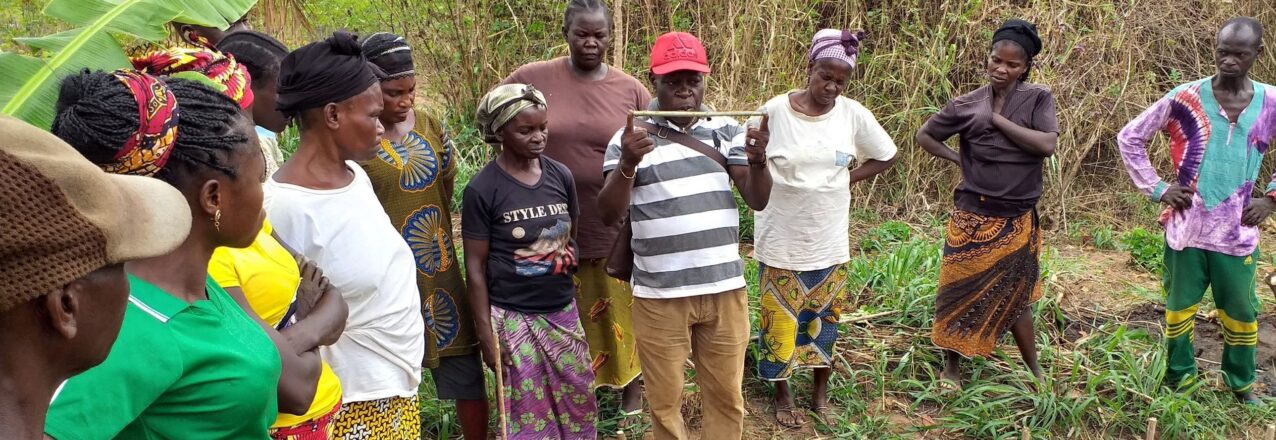Executive summary
The USAID Artisanal Mining and Property Rights (AMPR) Project in the Central African Republic aims to support the improvement of land and resource governance and strengthen property rights for all members of society, especially women. To ensure that both women and men gain the opportunity to equally participate in and benefit from the AMPR project, a Gender Action Plan was devised to help the project team identify and develop specific activities to benefit women in the mining areas, and ensure AMPR commitment to equitable stakeholder engagement for gender equity.
This report covers gender-related activities conducted under AMPR from October 2019 to August 2020. The main gender objectives for Year II were to support and improve the technical and organizational capacities of 21 women’s and mixed-gender groups in the target sub-prefectures of Carnot, Nola, and Boda, in order to spur economic empowerment and improve the social inclusion of women in mining areas. To implement these activities, AMPR subcontracted a local non-governmental organization called Association des Femmes pour la Promotion de l’Entreprenariat (AFPE), a women-led association for the promotion of entrepreneurship to provide technical training and mentoring to the AMPR-supported groups. In addition, the project team ensures effective representation and participation of women in local mining monitoring and conflict management committees.
In Year II, AMPR established relationships with 21 women’s and mixed-gender groups comprising a total of 535 members, including 425 women and 110 men. Almost all the groups identified food crops as their primary livelihood activity, and with the support of AFPE, AMPR provided training on improved agricultural practices to 52 specific farmers to become farming leaders, and provided technical assistance to their group members with support for replication using a farmer field school approach on 25 hectares, exceeding the 10 hectares initially planned. AFPE also facilitated training on village-level organizational strengthening for the leaders of the groups. 79 group leaders, of which 59 were women, received training of various topic and discussed the best strategies to apply them in their specific group’s dynamics. In addition to agricultural activities and in response to the COVID-19 pandemic, AMPR provided training and support to 10 women’s groups engaging in artisanal soapmaking, providing these groups with a complementary livelihood activity.
AMPR launched activities to increase women’s participation in the Kimberley Process (KP) Certification Scheme, with 10 women becoming members of the local mining monitoring committees (CLS), where they were familiarized with key KP requirements. In the compliant zones (ZEAs), women pit owners (chef de chantiers) have been actively involved in the discussion around establishing specific mining designated areas; community members and miners stakeholders agreed to have two women members in the local development committee to be set up to manage the ZEA.
While the project’s activities have been effective overall, critical factors challenged the project team during implementation and most likely affected outcomes. The COVID-19 pandemic restricted gathering for a long period, forcing AMPR and AFPE to reduce some of the activities planned from all the group’s members to just a few leaders. The team also face some challenges in maintaining the women’s interest, as 39% of women dropped out of the groups, leading to an increase in the number of men and the establishment of 20 mixed groups out of the 21 selected by AMPR. Based on lessons learned from this year, the AMPR team has already started a review of their approach to address limits identified and strengthen collaboration with local technical authorities, now all in place at their respective posts. AMPR will also strengthen collaboration with the European Union GODICA project and the World Bank Appui à la Professionnalisation des Coopératives Minières activity to improve support to women in mining areas, both in gold and diamond mining, as well as related livelihoods activities.


